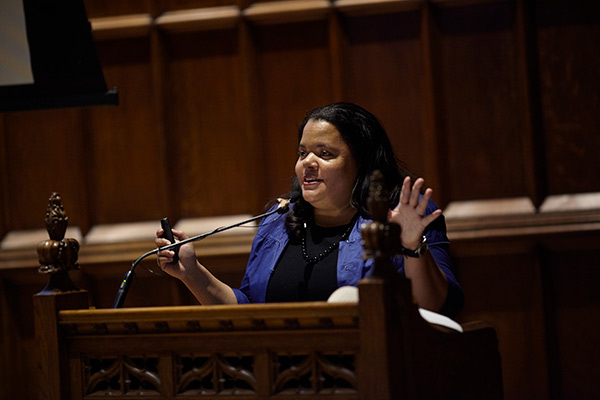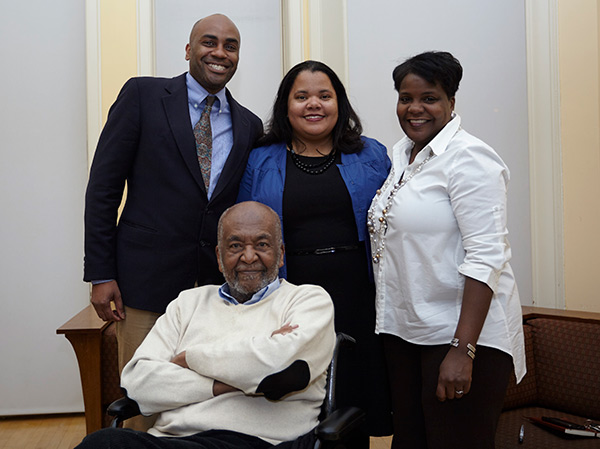Hidden Figuring: Gordon Lecturer Erica Walker surfaces the often invisible influences who help students of color identify as “math people”

When Erica Walker, Professor of Mathematics & Education, delivered TC’s fourth annual Edmund Gordon Lecture some weeks ago, she showed a video of Cooper telling that story. Her point: that the mathematical “socialization” of each person, whether positive or negative, owes much to “hidden” experiences like Cooper’s, conducted in informal spaces by “sponsors” of all rank and station. Promoting and surfacing these three “Ss” -- socialization, spaces and sponsors -- might inspire more young students to become interested in the creative, problem-solving aspects of math and identify as “math people.”

“I always think, when I go into these schools, ‘What else would others like Katherine Johnson have achieved if they had not had to fight for access and opportunity?” Walker said.
She closed with a slide of a picture sent to her by Scott Gallagher, a math teacher at Philippa Schuyler Middle School in Brooklyn, who had attended a professional development workshop she’d led. The slide showed a collage of a tree made by Gallagher’s students. The roots represented black pioneers in math like Benjamin Banneker and Thomas Fuller; the branches, subsequent black mathematicians like Johnson; and the leaves, the students themselves. “I think about the roots, the branches and the leaves -- how these stories can continue to inspire teachers and students,” Walker told her listeners. “And you, I hope, to generate interest in mathematics and mathematicians.”
The Gordon Lecture, named for TC Professor Emeritus Edmund W. Gordon, is part of the programming of TC’s Institute for Urban and Minority Education, which was founded by Gordon during the 1970s and is now directed by Ernest Morrell, Macy Professor of Education. The Lecture is supported by TC’s President and Office of the Provost.
A Tip of the Cap to A Lecture’s Namesake
Among the full house at February’s Gordon Lecture was the event’s namesake, 95-year-old TC Professor Emeritus Edmund W. Gordon, Jr. Though Gordon recently lost his wife and collaborator of 70 years, pediatrician and Columbia professor Susan Gordon, he remains an active and powerful force in education, noted TC President Susan Fuhrman.
Gordon Lecturer Erica Walker thanked Gordon for mentoring her when she was a TC Minority Postdoctoral Fellow. “He opened doors to numerous personal and professional connections and friends that I treasure.”
Published Thursday, Apr 13, 2017